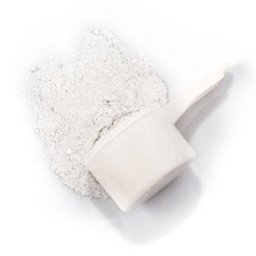
The supplement market is a multi-billion dollar industry. There are thousands of supplements on the market, most of which are junk. About 5% of supplements are beneficial, while 95% are not.
With so many brands and products on the market, it isn’t easy to know what product to trust, mainly since the FDA does not regulate supplement studies and lawsuits have shown that some brands don’t have the ingredient that is claimed to be in the product, and some supplements have banned substances. To ensure a high-quality product, see if the supplement has been third-party tested. But what does this mean, exactly? And why is it important?
What is Third-Party Testing?
Third-party testing refers to having an independent lab test a product or supplement to verify they contain what they say they contain. In the case of supplements, this means sending product samples to a lab for analysis.
Some types of tests might be performed as part of third-party testing. For example:
- Identity testing: This test verifies that the supplement contains the ingredients on the label.
- Strength/potency testing: This type of test measures how much active ingredient is present in each dose.
- Purity testing: This test checks for contaminants like heavy metals or bacteria.
Why is Third-Party Testing Important?
- It provides an extra layer of verification that the product is what it claims to be. Unfortunately, not all supplement manufacturers are honest about the ingredients in their products. Nearly one-third of the dietary supplements tested contained unlisted ingredients, and many herbal supplements contained contaminants like heavy metals, bacteria, and pesticides. In some cases, supplements have been found to contain harmful substances like prescription drugs.
- It ensures that the supplement contains the correct amount of active ingredients. This is particularly important for supplements intended to provide a specific therapeutic benefit. For example, if a supplement is marketed as containing 500mg of vitamin C per dose but only contains 200mg, it may not be effective at providing the desired health benefits.
- Third-party testing provides an unbiased assessment that verifies the quality and purity of a product, so you can feel confident in your purchases.
It’s important to note
-
Third-party testing does not test to see if a product is effective or safe for everyone, and it does not ensure the supplement will not interact with other supplements or medications.
-
Not all third-party testing is created equal. It is not uncommon for supplement companies to pay labs for certificates after conducting minimal to no testing.
-
The third-party certifications we can trust: ConsumerLab.com, NSF, and USP. However, these certifications are difficult to obtain and expensive for manufacturers, so many companies choose not to get their products tested by one of these three organizations. Furthermore, these certifications can take many years, so mature companies can usually provide this certification level.
-
Products tested by these three companies are more expensive to offset the cost they pay for certification.
-
Just because a supplement is not tested by one of these three companies does not mean it’s a bad product. I recommend researching the manufacturer’s reputation and calling the manufacturer and their testing lab to determine their protocols and decide if you feel comfortable consuming the supplement.
What To Look For When Choosing Supplements
- Check whether the brand or manufacturer mentions third-party testing on its website or product label. If they do mention it, make sure they specify which tests were performed and by which lab.
- Look for supplements certified by reputable third-party organizations. For example, the United States Pharmacopeia (USP) is a nonprofit organization that sets standards for supplement quality and provides certification for products that meet those standards. Other organizations that offer similar certifications include NSF International and ConsumerLab.com.
- Consider the source of the ingredients used in the supplement. Ideally, you want to choose products made with high-quality, pure ingredients. Look for supplements that use ingredients sourced from reputable suppliers and are transparent about their sourcing practices.
- Read reviews from other customers before making your purchase. This can give you an idea of how well the product has worked for others and whether there have been any issues with quality or purity.
Is Your Supplement/Product Third-Party Tested?
Click one of these sites to see if your supplements are certified or to get a list of certified products.
Informed Choice
https://choice.wetestyoutrust.com/sites/default/files/generated-pdf/file.pdf
NSF
https://www.nsf.org/certified-products-systems
https://www.nsfsport.com/certified-products/
Bottom Line
- Supplements aren’t magic, so be realistic with your expectations.
- Most supplements are junk
- Before starting any supplement, make sure your nutrition is in check. If your diet sucks, a supplement won’t fix the problem. If you need help with your diet, click HERE to learn about my customized meal plan.
- Always check with your doctor before starting any supplement. Certain medications may have interactions.
For more fitness and nutrition tips and information, follow Aftann on Instagram and Facebook.






